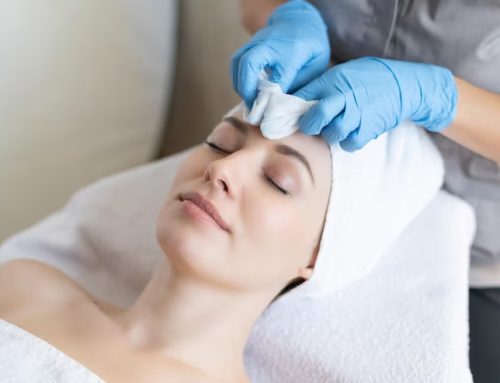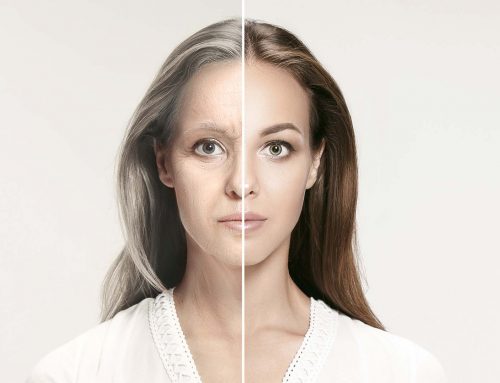People’s life with eczema can be challenging. It is a chronic and recurring inflammatory skin disease that is characterized by inflamed skin patches that are super itchy, dry, and scaly. This may lead to leakage of clear fluid when you scratch it which in turn causes more itching.
Eczema is linked to an overactive immune system that changes the structure and function of the skin making it more itchy, sensitive, and vulnerable to irritants.
Atopic dermatitis is the most common type of eczema which was once considered a malady of childhood as many kids would outgrow. However, much evidence supports that it’s a lifelong illness, and there may be more adult-onset cases than the researchers previously thought.
Even though there are promising eczema treatments available, atopic dermatitis can flare up over and over again with certain triggers making it worse.
Here are some of the common culprits that can exacerbate the symptoms of atopic dermatitis.
Scratching
There is no denying the fact that atopic dermatitis is extremely itchy. When you have it, it’s really difficult to resist not scratching your nagging itch, especially at nights when you scratch in your sleep. At times, you scratch until you start bleeding which may lead to infection and further aggravate skin symptoms. You can get stuck in a vicious cycle of itching and scratching before even knowing it. Dealing with such skin conditions can be emotionally stressful.

You can try behavioral therapy that uses relaxation techniques and focuses on habit reversal, it aims to halt the itch-scratch cycle.
Cold, Dry Temperatures
Your skin is already dry when you are suffering from atopic dermatitis. Low-humidity and cold weather climates envelop your body in additional dryness and make your skin itchier. Change in seasons can also bring on or aggravates symptoms. According to dermatologists, a humid climate is the best place to be for eczema patients.

You must keep your thermostats low and dress light for your sleep to avoid sweating at night.
Hot Water Bath
A steamy long bath or shower might sound enticing after a hectic day. However, dermatologists warn patients to avoid it as eczema symptoms get worse due to the drying of the skin. Moreover, at extreme temperatures, you may sustain some serious burns. Switching temperatures quickly can also aggravate symptoms such as coming home from shoveling snow and immediately hopping into a hot water bath.

Daily short soaks in cool or lukewarm water help your skin absorb moisture without drying out. Always remember to apply moisturizers, hydrating creams, or gel to lock in the moisture quickly after your bath.
Sweating
People with eczema often experience symptoms when they break a sweat, whether flopping around in sweaty sheets during the night or doing work out. The combination of sweating and eczema is deadly. Life can be struggling for an atopic dermatitis patient who is suffering from excessive sweating or hyperhidrosis. You are always sweaty and itchy which is a whole other level of pain.
Wear loose and skin-friendly soft clothing, towel off regularly during exercise, and shower immediately afterward. Meet your dermatologist for the treatment of excessive sweating if you are suffering from it.
Soaps, Shampoos, and Bubble Baths
Personal hygiene products tend to irritate the eczema skin and strip away moisture and natural oils that keep the skin moist. Parabens and formaldehyde in your skincare products can also be the cause of irritated skin causing your atopic dermatitis to flare up. Soaps should be a big no for patients with atopic dermatitis. They make your skin dry and hence itchy aggravating symptoms of eczema.

You should only use cleaners when needed. Bubble bath products must be avoided by eczema patients as they often contain fragrances. Your cleanser may also contain some of the irritating ingredients such as colloidal oatmeal.
Fragrances and Preservatives
Fragrances and dyes can be immensely irritating for sensitive and vulnerable skin, and cause atopic dermatitis symptoms to flare up. Moreover, fragrances aren’t just found in perfumes, deodorants or soaps, it can also be present in moisturizers, makeup, shampoos, conditioners, cosmetics, and household products like fabric softener, laundry detergents, dishwasher, and dryer sheets.
You must shop carefully for safe-for-your-skin products with the terms “free of dyes and fragrances” and “hypoallergenic” on the label. You need to read the ingredients before buying any products as even the fragrance and dye-free products can also be containing chemicals that may irritate the skin.
Pollen, Mold, and Dust
Environmental allergens can worsen the eczema symptoms in the patients. People with allergic reactions tend to have exasperated symptoms of atopic dermatitis. Eczema and allergies are highly interconnected. Most of the people with eczema have allergies to pollens, molds, or dust.

Use HEPA-filtration vacuums, air purifiers, and humidifiers in your homes and workplaces. Invest in hypoallergenic mattresses and pillowcases covers to rule out the possibility of potential allergens.
Infection
All kinds of bacterial and viral infections can worsen eczema. This is one of the main reasons scratching is highly discouraged, although atopic dermatitis patients have more bacteria on their skin surface due to abnormal functioning of the skin. While scratching your skin, you can easily introduce germs like herpes simplex virus and Staphylococcus aureus.
Antibiotics are a good way to treat infections but cannot prevent them. It is recommended to take a bath in a mild home bleach solution 2-3 times a week to reduce the bacterial growth on your skin.
Food Allergies
Some of the food may also flare up your eczema. There are a couple of ways a few foods might cause skin symptoms. In some cases, you may encounter the reactions within minutes after having certain food, while in other less common reactions it may take some hours for symptoms to occur. Certain foods such as peanuts, soy, eggs, fishes, and dairy products are known to aggravate eczema symptoms. Even spicy food can cause skin irritation.

Do not make any drastic changes in your diet based on your hunch. You should consult your nutritionist before adding or cutting out any food from your diet. Exclusion diets can lead to deficiencies and should only be done with an expert’s supervision.
Hormones
If you are a woman with eczema, you may have observed how the symptoms flow along with changes in your hormonal cycle. During pregnancy, your body goes through extreme hormonal changes which may trigger a lot of skin conditions. Women eczema patients may find their symptoms worsen during pregnancy. While having your menses you may tend to have irritated skin as well due to the changes in the hormones progesterone and estrogen.
Conclusion
Life with eczema can mean spending your energy and time avoiding triggers and conditions that will cause your symptoms to flare up. Some adjustments to your lifestyle, diet, home, and workspaces can all help minimize symptoms.
If you want to know more about Eczema, let us help you explore your options. Schedule an appointment for a visit at our Lansing or Mount Pleasant dermatology office, whichever is convenient for you.
Disclaimer
The information contained on safehealthcenter.com is for informational and educational purposes only and should not be relied upon for any medical or diagnostic purpose, or for the treatment of any condition or symptom. This information is subject to change without notice and should not be considered current, complete, or exhaustive. You should refrain from relying on such information to recommend a course of treatment for you or any other individual without consulting our experts.





Leave A Comment